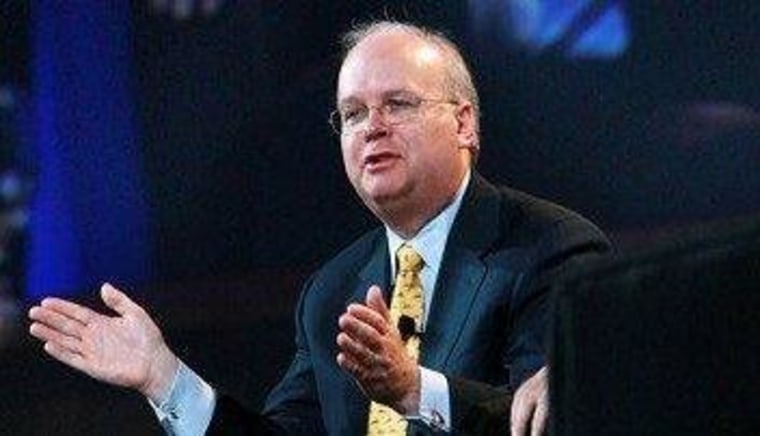Despite their reputation for unity, Republicans are increasingly finding deep schisms within their ranks. GOP policymakers and their allies are fighting amongst themselves on everything from immigration to gun safety, fiscal strategies to defense.
But just below the surface, perhaps the most striking disagreement relates entirely to electoral considerations.
In public, Republicans insist their biggest problem is rhetorical -- they need to identify a better way to sell their ideas to voters. In private, Republicans focus more on their primary problem -- GOP leaders are convinced that the party would be in far better shape right now were it not for rank-and-file Republican voters nominating unelectable loons in so many key races.
It's a problem the party establishment is desperate to fix. Indeed, in the wake of their 2012 defeats, Republicans have taken some steps to strengthen the party establishment and prevent fiascoes like the ones the GOP has seen in Delaware, Nevada, Colorado, Indiana, Missouri, and elsewhere.
But it's easier said than done. Indeed, party leaders seem to believe earlier endorsements from the GOP establishment might send unmistakable signals to the base and would-be challengers, but that misses the point -- the Republican base doesn't much care whom the establishment prefers. If the party's heavyweight players are going to make a real difference in crushing extremist clowns before they win primaries, it's going to cost a lot of money
Enter Karl Rove's operation to the rescue.
The biggest donors in the Republican Party are financing a new group to recruit seasoned candidates and protect Senate incumbents from challenges by far-right conservatives and Tea Party enthusiasts who Republican leaders worry could complicate the party's efforts to win control of the Senate.The group, the Conservative Victory Project, is intended to counter other organizations that have helped defeat establishment Republican candidates over the last two election cycles. It is the most robust attempt yet by Republicans to impose a new sense of discipline on the party, particularly in primary races.
The Conservative Victory Project is the latest effort from Rove, and will exist as an appendage of sorts to the American Crossroads super PAC.
Its efforts will not go unchallenged.
Roll Call reported over the weekend that the Senate Conservatives Fund, founded by former South Carolina Sen. Jim DeMint (R), is already condemning Rove's new project.
"This is a continuation of the establishment's effort to avoid blame for their horrible performance in the 2012 elections," Senate Conservatives Fund Executive Director Matt Hoskins said. "They blew a ton of races up and down the ticket because they recruited moderate Republicans who didn't stand for anything. Now they want to use this new PAC to trick donors into giving them more money so they can lose more races."
Club for Growth spokesman Barney Keller echoed the sentiment: "They are welcome to support the likes of Arlen Specter, Charlie Crist and David Dewhurst. We will continue to proudly support the likes of Pat Toomey, Marco Rubio and Ted Cruz."
Hoskins and Keller have a point. On the other hand, so does Rove. In fact, the great irony of this fight is that neither side of the Republican divide has any credibility at all.
Rove's American Crossroads raised breathtaking amounts of money in 2012, promising right-wing donors an impressive return on investment, and proceeded to lose nearly every race Rove targeted. Right-wing groups, meanwhile, weren't much better, and helped nominate ridiculous candidates that led to Democratic victories.
Rove and his allies argue, "Listen to us or we'll be stuck with another bunch of candidates like Akin, Mourdock, O'Donnell, and Angle." Simultaneously, the Club for Growth and its allies argue, "Listen to us or we'll be stuck with Karl Rove's 99% failure rate."
The opportunity for a round of bitter proxy fights will materialize very soon: Steve King in Iowa, Paul Broun in Georgia, and Joe Miller in Alaska are each poised to launch right-wing Senate bids, and by most measures, these candidates are so far from the mainstream they're very likely to fail -- after winning their respective primaries.
The Conservative Victory Project will likely try to take them down during their respective primaries, and even-further-right-wing groups will push in the opposite direction.
It won't be pretty, but Democrats will love every minute of it.
